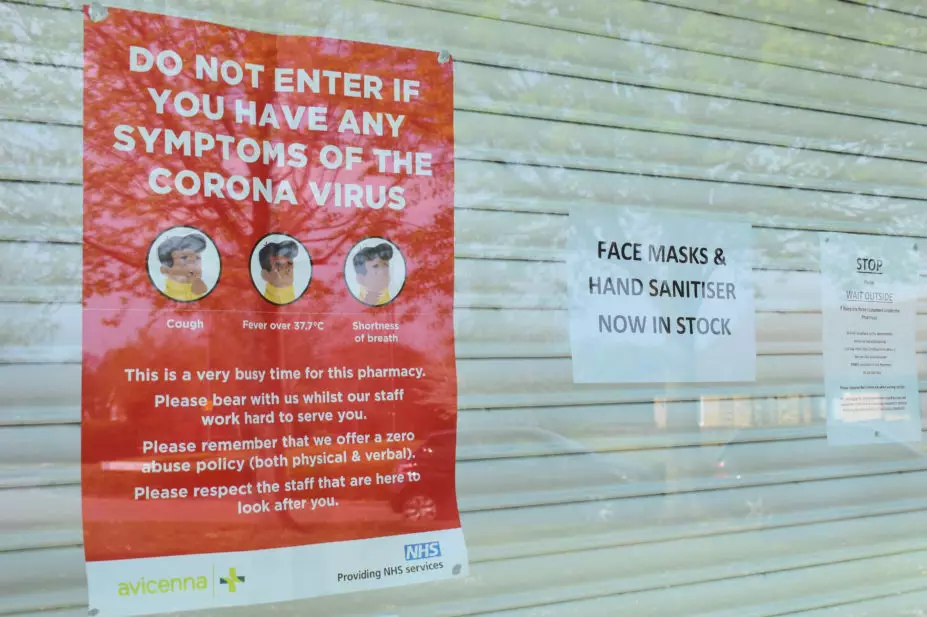
Alice Mitchell / Alamy Stock Photo
One morning in March 2020, I suddenly found myself in a community pharmacy again — I hadn’t expected to be back.
I had spent recent years in primary care, before taking a short break from pharmacy altogether. Things were different now: keen to play my part during the pandemic, I decided to return to locum work. But I was apprehensive.
My previous experiences of being locum had been a mixed bag. When I was newly qualified, locum work built my confidence and it was invigorating to work with new people in different places every day. However, it couldn’t last — eventually the struggle to build lasting relationships left me isolated and miserable. Still harbouring these doubts, I felt sure that going back was only a short-term solution.
At first, the familiar environment of a hectic dispensary — endless piles of prescriptions, phones ringing off the hook, delivery drivers coming and going — reassured me that nothing much had changed. Community pharmacies always go the extra mile during busy periods, and in that sense the world was still turning. The locum shifts were more ad hoc and last minute than usual, but the workload was a welcome distraction. If you switched off the radio, you could almost imagine it was just another bank holiday.
Although there were some new situations to contend with. There was the socially distanced consultation with a woman who hadn’t been told how to self-administer her contraceptive injection: “Can I have a few cans before I do it? I’m scared of needles.”
Another was me nodding along politely to conspiracy theories. I’ve had to field questions that no academic or government scientist, let alone community pharmacist, seemed to have the answer to, and suddenly I became the de facto authority on mask-wearing: this never became any less surreal. But these challenges felt, at least, manageable.
I used to recoil at the idea of ‘networking’, but now — in a time of such unprecedented remoteness — I realise I hadn’t fully grasped how these connections help us to feel supported
I wasn’t prepared for what came next — social isolation, the indirect impact of COVID-19. I wasn’t ready for the phone conversations with shielding patients. The elderly woman, alone with her husband, whose faltering memory and increasingly erratic behaviour had led his wife to lock all the doors and windows. The middle-aged man, living alone, who joked about having so little social contact that he’d started arguing with his TV.
You often come across lonely people in community pharmacy. They can be frequent visitors, who want to pass the time with a chat, a complaint, an opinion or a joke. Had it really taken my own temporary separation from friends and family to understand what these interactions were worth?
I had once vainly regarded these interactions as our service to the community. Now, I realised how much I missed them too. There was an unfamiliar feeling of emptiness when I put the phone down, or cut short a conversation about last night’s football to let the next customer into the shop.
I started to reflect on isolation in a professional sense too. Maintaining relationships as a locum has always been hard, but there were always opportunities. I used to recoil at the idea of ‘networking’ in the crude, self-promotional sense, but now — in a time of such unprecedented remoteness — I realise I hadn’t fully grasped how these many connections help us to feel supported, and make our work more enjoyable.
But sometimes it can feel like participation isn’t encouraged, even since I’ve returned to locuming in the pandemic. There’s a perception that locum pharmacists don’t (or even shouldn’t) care, so doing anything beyond the bare minimum can sometimes be difficult.
“It’s not an essential service” was the flat rebuke from the clinical commissioning group, when I asked to lead telephone medicines use reviews. And I couldn’t get a certificate for completing the freely available flu vaccination e-learning resource without an employer’s reference. Whether this exclusion is intentional or not, it is easy to see how locums can feel their contribution is unwelcome.
In the end, a colleague put me in touch with a local pharmaceutical committee contact who could act as a reference — another minor validation of my new perspective on locum work. The small world of community pharmacy provides an enviable support network. But it was only through social isolation during the pandemic that I had sought out these connections, and finally understood their worth.
Eight months on, I am enjoying a renewed focus on the social nature of our work, and the humanity, patience, compassion, humour and understanding of people during difficult times. And for that reason, I am glad to back.
Tom Acey, locum community pharmacist, north east England


